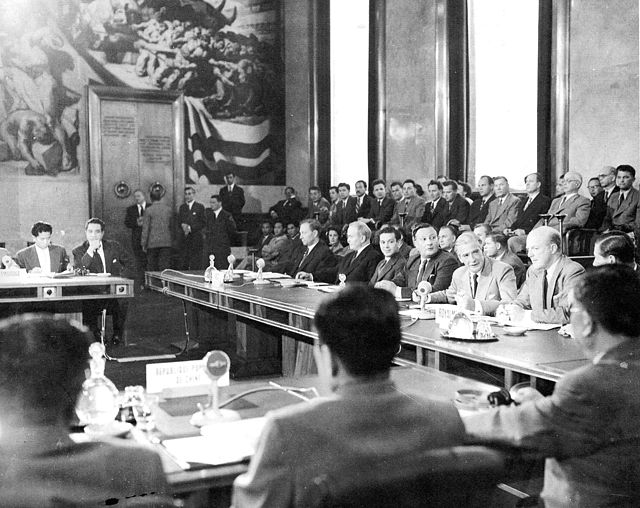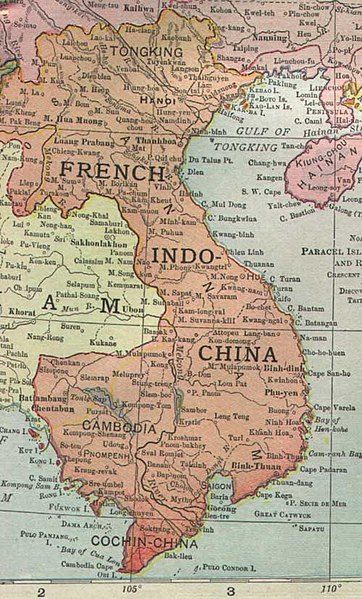The Geneva Conference was intended to settle outstanding issues resulting from the Korean War and the First Indochina War and involved several nations. It took place in Geneva, Switzerland, from 26 April to 20 July 1954. The part of the conference on the Korean question ended without adopting any declarations or proposals and so is generally considered less relevant. On the other hand, the Geneva Accords that dealt with the dismantling of French Indochina proved to have long-lasting repercussions. The crumbling of the French colonial empire in Southeast Asia led to the formation of the states of the Democratic Republic of Vietnam, the State of Vietnam, the Kingdom of Cambodia, and the Kingdom of Laos. Three agreements about French Indochina, covering Cambodia, Laos, and Vietnam, were signed on 21 July 1954 and took effect two days later.
The Geneva Conference
Geneva Conference, 21 July 1954. Last plenary session on Indochina in the Palais des Nations. Second left Vyacheslav Molotov, two unidentified Soviets, Anthony Eden, Sir Harold Caccie, and W.D. Allen. In the foreground, the North Vietnamese delegation.
Anti-communist Vietnamese refugees moving from a French LSM landing ship to the USS Montague during Operation Passage to Freedom in August 1954.
The First Indochina War was fought between France and Việt Minh, and their respective allies, from 19 December 1946 until 20 July 1954. Việt Minh was led by Võ Nguyên Giáp and Hồ Chí Minh. Most of the fighting took place in Tonkin in Northern Vietnam, although the conflict engulfed the entire country and also extended into the neighboring French Indochina protectorates of Laos and Cambodia.
Clockwise from the top: After the fall of Dien Bien Phu, supporting Laotian troops fall back across the Mekong River into Laos; French Marine commandos wade ashore off the Annam coast in July 1950; M24 Chaffee American light tank used by the French in Vietnam; Geneva Conference on 21 July 1954; A Grumman F6F-5 Hellcat from Escadrille 1F prepares to land on French aircraft carrier Arromanches operating in the Gulf of Tonkin.
French Indochina (1913)
Võ Nguyên Giáp and Hồ Chí Minh (1945)
Japanese troops lay down their arms to British troops in a ceremony in Saigon after the surrender of Japan.







